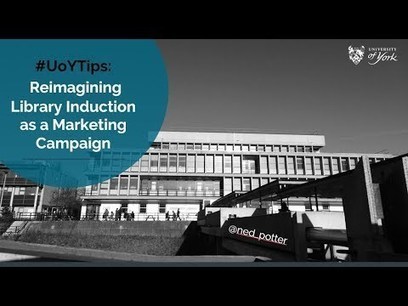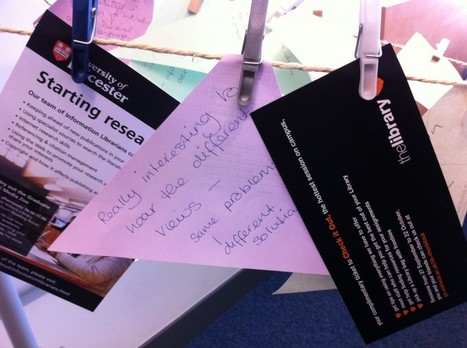The final network in Universal Design for Learning is the strategic network. Its focus is on how learning takes place. The goal for this network is for learners to be “strategic and goal-directed” (CAST, 2019b). To do this, CAST (2019a) recommends educators provide multiple ways for students to express their learning.
Every individual expresses themselves in different ways. This means they also convey what they have learned in various ways. These variations can be due to physical limitations, language barriers, or different ways of understanding content. When we are working with library users in training sessions, in new hire orientations, or conducting internal staff training, we want to provide many opportunities for each person to showcase their learning. Taking time for individuals to demonstrate what they have learned helps us know that
Get Started for FREE
Sign up with Facebook Sign up with X
I don't have a Facebook or a X account

 Your new post is loading... Your new post is loading...
 Your new post is loading... Your new post is loading...
Current selected tag: 'library induction'. Clear
A blog about creativity and innovation in the library at the University of York. We won an award! York just received a Bronze Marketing Award from CILIP's Publicity and Public Relations Group at the annual PPRG Conference, held in Birmingham in January. It was in relation to the work we'd done on our Induction project - in 2016 (and then this year as well) we got rid of the big orientation games, and ran it like a marketing campaign. It worked really well and we got a great response - some elements weren't successful and we improved on them this year. 1
[From 2011 but still relevant. ]
Earlier this week I attended an exchange of experience event on inductions at De Montfort University. It was organised by Kaye Towlson and based on the TeachMeet model. The session began with speed networking and thought share bunting, or analogue Twitter, where we could easily share our ideas throughout the event. |
The Open University’s Library Services (http://www.open.ac.uk/library/) has a specialist team of 7 librarians, the Live Engagement team, who design and deliver real-time online teaching using Adobe Connect. There is a programme of generic library and module-specific sessions. Whilst we reach a lot of students through these sessions, we like to try out new ways of engaging with students and hope to reach those who don’t attend formal library training.
I have an abiding belief that learning begins in conversation. Both instincts and my own experience in the classroom tell me that when you engage a student in conversation about their “topic” you are often engaging them in a way that gives voice to an idea that has just been rolling around in their heads, one they may be really struggling with and not even know how to approach. When they engage with each other, they become part of what I have previously called a community of scholars — making meaning and contributing to knowledge together. Which is also how learning happens. |












